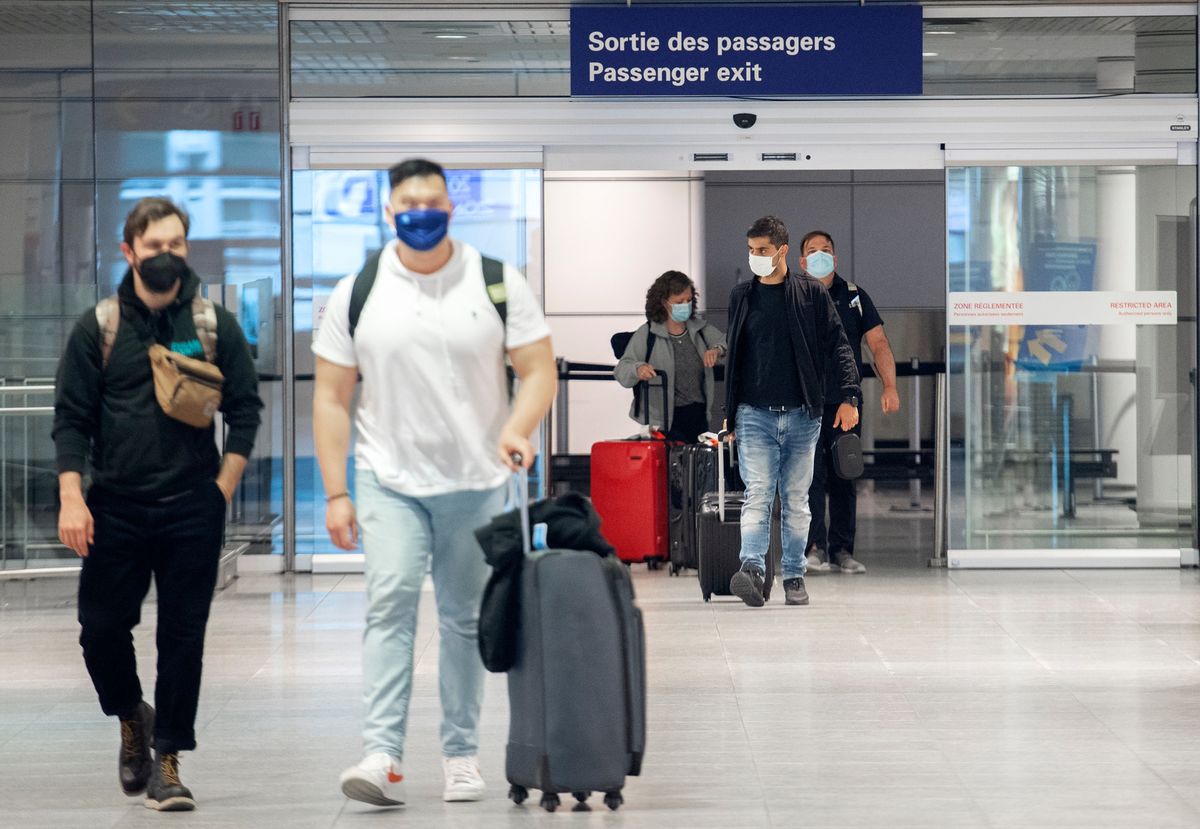Canada Travel Restrictions: What You Need to Know Before You Go
As of March 18, 2020, all travel to Canada by foreign nationals is restricted. This includes visitors and temporary residents. The only exceptions are for Canadian citizens and permanent residents, as well as their immediate family members (spouses, common-law partners and dependent children).
These individuals will still be able to enter Canada.
As of right now, the Canadian government is not allowing any non-essential travel into the country. This includes tourism, as well as business and personal visits. There are a few exceptions to this rule, such as essential workers and those with immediate family in Canada, but for the most part, everyone is being asked to stay home.
The restrictions have been in place since March 2020 and show no signs of changing anytime soon. The main reason for this is because Canada wants to keep its citizens safe from the pandemic. And while some people may be frustrated by these travel restrictions, it’s important to remember that they’re in place for a good reason.
If you’re planning a trip to Canada anytime soon, you’ll need to change your plans. But who knows? Maybe by next year things will be back to normal and we’ll all be able to enjoy a nice vacation in one of the most beautiful countries in the world!
US & Canada remove COVID travel restrictions for international tourists | World English News
Are There Still Covid Restrictions to Enter Canada?
Yes, there are still restrictions in place for entering Canada if you have been in contact with someone with Covid-19 or if you have symptoms of the virus. You will need to quarantine for 14 days upon arrival and get a negative test before you can leave your home.
Do I Need to Be Vaccinated to Enter Canada?
If you are planning to travel to Canada, you may be wondering if you need to be vaccinated. The answer is yes, there are some vaccinations that are recommended or required for entry into Canada. The Canadian government recommends that all travelers get the following vaccines:
-Tetanus ( booster shot every 10 years)
-Diphtheria
-Polio
-Measles
-Mumps
-Rubella (MMR vaccine)
-Chickenpox
These vaccines are recommended because they protect against diseases that are common in other parts of the world and could be brought into Canada. In addition, some provinces and territories require proof of vaccination for certain diseases, such as measles, before attending school.
Check with your local public health authorities for specific requirements.

Credit: www.macleans.ca
Canada Travel Restrictions Update
As of March 2020, the Canadian government has placed travel restrictions on all international flights in an effort to prevent the spread of COVID-19. These restrictions are expected to remain in place until at least June 30th, 2020.
Canadian citizens and permanent residents are still able to return to Canada, but they will be required to self-isolate for 14 days upon arrival.
Non-essential travel between Canada and the United States has also been restricted, although there are some exceptions for essential workers and those with close family ties in either country.
The Canadian government is advising against all non-essential travel outside of Canada at this time. If you must travel, it is important to check the latest advisories and entry requirements for your destination before departure.
For more information on current travel restrictions in Canada, please visit the Government of Canada’s website.
Unvaccinated Travel Restrictions Canada
As the COVID-19 pandemic continues to affect countries around the world, Canada has implemented a number of travel restrictions in an effort to keep its citizens safe. One of these restrictions is that all travellers entering the country must be vaccinated against the virus. This means that if you are not vaccinated, you will not be able to enter Canada.
There are a few exceptions to this rule, such as if you are travelling for essential work or medical reasons, but in general, unvaccinated travellers will not be allowed into the country. This is in line with other countries that have similar travel restrictions in place, such as the United States and Australia.
If you are planning on travelling to Canada, make sure you are up-to-date on your vaccinations.
If you are not vaccinated, you may still be able to enter the country if you can show proof of a negative COVID-19 test taken within 72 hours of your flight. However, it is always best to check with your airline and travel agent before booking any flights.
International Travel Restrictions Canada
As of March 18, 2020, the Canadian government has implemented a series of travel restrictions in an effort to contain the spread of COVID-19. These restrictions are subject to change at any time, and we recommend that you check for updates before making any plans to travel outside of Canada.
All non-essential travel outside of Canada is discouraged.
If you must travel, you should:
– Check if your destination is affected by any travel advisories or warnings;
– Make sure you have proper health insurance coverage;
– Have a plan for what you will do if you get sick while away; and
– Follow the advice of local authorities when travelling.
Conclusion
Assuming you would like a summary of the blog post titled “Travel to Canada Restrictions”:
As of March 18th, 2020, the Canadian government has put travel restrictions in place in order to help prevent the spread of COVID-19. All non-essential travel into Canada is not advised at this time, and those who do choose to travel are subject to a 14-day self-isolation period.
These restrictions are expected to be in place for the foreseeable future.
